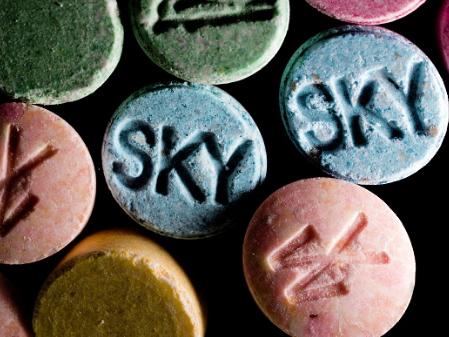MDMA may treat PTSD by reopening sociable 'window' which closes after puberty, study suggests
Doctors believe drug's success in treating PTSD could be down to it stimulating 'social reward learning' and increased brain connectivity

The key ingredient in the club drug ecstasy reopens a “window” from the brain’s development during puberty where it craves social interaction, according to a new study.
Doctors have been studying the effects of MDMA (methylendioxymethamphetamine) to understand similarities between its effects and changes in the developing brain.
They hope this could be used to address mental health conditions and neurodegenerative disease.
US researchers from Baltimore's Johns Hopkins University have now found that a single dose of the drug was enough to return adult mice which had lost this heightened interest in socialising, to this adolescent state for up to six weeks.
MDMA assisted therapy was recently given “breakthrough” status by the US government for the treatment of post-traumatic stress disorder (PTSD).
“Despite the excitement over these clinical findings, the mechanisms that underlie the therapeutic efficacy of MDMA for PTSD are largely unknown,” said lead author Dr Gül Dölen and her colleagues, in their study published in the journal Nature.
Some theories have suggested its benefits are down to MDMA’s ability to help people re-evaluate memories and lessen fearful experiences.
However, the similarities between MDMA treatment and this sociable period in adolescence led the John Hopkin's team to suggest it might be returning the brain to this earlier state.
“The therapeutic efficacy of MDMA might stem from its ability to reopen the critical period for social reward learning, thereby fostering the alliance between psychologist and patient during MDMA-assisted psychotherapy,” the authors write.
When humans and other mammals are in their early years in adolescence changes in the brain make them increasingly sensitive to external stimulation from new interactions and experiences.
In the mice this critical window is triggered by the increased production of the mood-boosting hormone oxytocin in the brain’s reward centre.
When the animals reach full adulthood those oxytocin levels drop, along with the animals interest in social interaction. But Dr Dölen and colleagues were able to reset this for six weeks with a single dose of MDMA.
These development windows are also periods where the brain is adept at making new connections between neurons.
This phenomenon, known as “plasticity”, explains why we are better at learning new skills, like languages and instruments when we are young, but this flexibility decreases as we get older.
If MDMA can trigger this developmental window in humans in the same way as in mice it could be incredibly important for neuroscientists looking therapies to help recovery from brain damage caused by injury, stroke or degenerative disease.
“In disease states, closure of the critical periods limits the ability of the brain to adapt even when optimal conditions are restored,” the authors said. “Thus, identification of manipulations that reopen critical periods has been a priority for translational neuroscience.”
Join our commenting forum
Join thought-provoking conversations, follow other Independent readers and see their replies
Comments
Bookmark popover
Removed from bookmarks